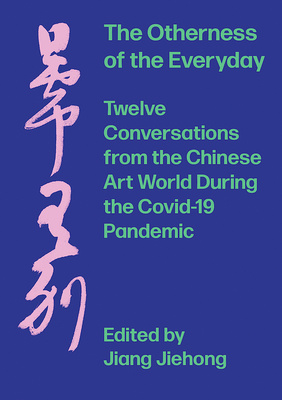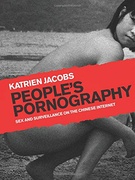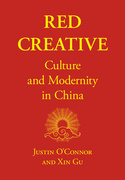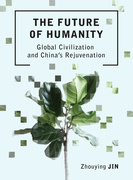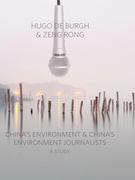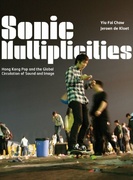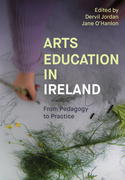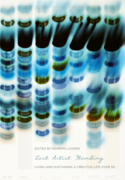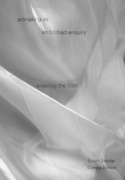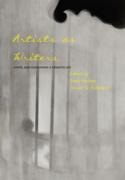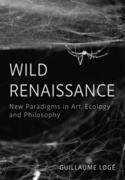The Otherness of the Everyday (Book)
Twelve Conversations from Chinese Art World During the Pandemic
Based on a series of conversations, convened by Jiang Jiehong, director of the Centre for Chinese Visual Arts, Birmingham City University. Individuals from a range of disciplines including anthropology, architecture, art, curating, fashion, film, literature, music and photography reflect on experiences during the COVID-19 pandemic. 30 b/w illus.
Edition
At the end of 2019 to the beginning of 2020, when the coronavirus first emerged, Wuhan in China became the first city in the world affected by this deadly disease. It then rapidly spread to the entire country, and further on to Europe, America and the rest of the world.
During these strange times, we witness the emptiness of streets, squares and cities everywhere; we are estranged from and yet ‘connected’ to each other. As a response to the pandemic, Jiang Jiehong convened in-conversation talks with figures from different disciplines in the Chinese-speaking world, including anthropology, architecture, art, curating, fashion film, literature, media, museum, music and photography.
The twelve high-profile participants in these conversations are Xiang Biao, Zhang Peili, Pi Li, Zhang Zikang, Gu Zheng, Li Lin, Zhang Zhen, Shu Kewen, Jiang Jun, Wang Shouzhi, Chen Danqing and Zhu Zheqin.
These conversations foster new understandings of this present-day crisis; the threat of the invisible, notions of distance and spatialization, separation and isolation, communication and mobility, discipline and surveillance, and community and collectiveness, as well as the increase in conflicts and divisive voices between China and the world. At the same time, these reflections give us the opportunity to re-examine our past ‘normality’, and to project our future visions of a post-COVID world.
Readership will include those working and studying in the humanities and specifically in the disciplines of the interviewees, and those who have particular interests in contemporary China. The Otherness of the Everyday is also of interest to a more general audience who has experienced the pandemic and is seeking innovative understandings of this global crisis in human history.
Jiang Jiehong is head of research at the School of Art, director of the Centre for Chinese Visual Arts, Birmingham City University, and he is also principal editor of the Journal of Contemporary Chinese Art (Intellect) and author of The Art of Contemporary China (Thames and Hudson, 2021).
List of figures
Acknowledgement
Introduction: The otherness of the everyday
1. The state of suspension
Conversation with Xiang Biao, 6 June 2020
2. The art of quarantine
Conversation with Zhang Peili, 13 June 2020
3. The end of the museums
Conversation with Pi Li, 20 June 2020
4. An exhibition in the palm of your hand
Conversation with Zhang Zikang, 27 June 2020
5. Expressions of the pandemic
Conversation with Gu Zheng, 4 July 2020
6. In fashion at home
Conversation with Li Lin, 11 July 2020
7. Filming the lockdown
Conversation with Zhang Zhen, 18 July 2020
8. Experience and knowledge
Conversation with Shu Kewen, 15 August 2020
9. In control
Conversation with Jiang Jun, 22 August 2020
10. Virus-affected design
Conversation with Wang Shouzhi, 29 August 2020
11. Infected or transmitted
Conversation with Chen Danqing, 5 September 2020
12. The un-isolatable
Conversation with Zhu Zheqin, 12 September 2020
Glossary
'[The book's] strength lies in the fact that the voices we read are not – again – discussing China or Chinese art as the “other” in longstanding, now globalized academic discourses of (cultural) alterity and artistic practices that are informed by post-colonial, transnational or transcultural negotiations of difference. Rather, all participants share the experience of an unexpected “othering” of their daily lives and the amazement of being brought together more closely through a global crisis, while at the same time being forced apart – “two metres” – and mostly stranded in their homes. [...] Jiang allows us to travel back in time, compare and witness how the beginning of the global pandemic not only fuelled anxieties of cultural difference and national control, but also showed the need to overcome our screens and epistemic borders, to sustain mutual dialogue, while affirming just how related we really are.'

